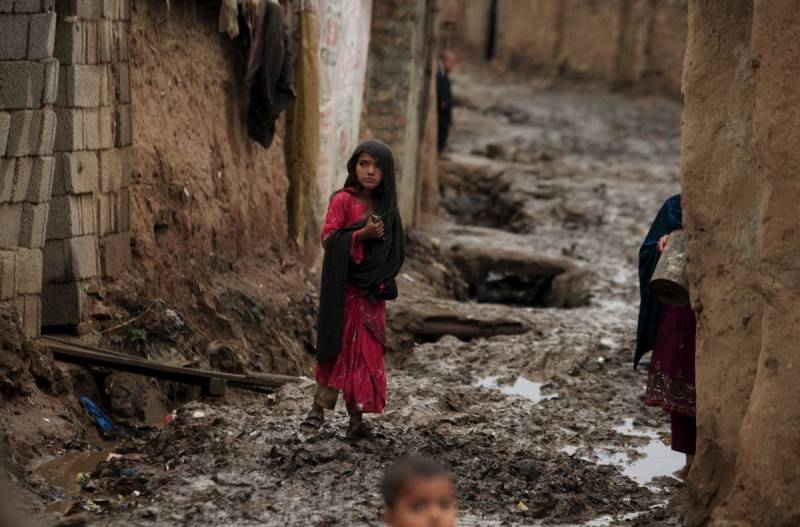
The State religion and the Constitution of Pakistan provides for equality and non-discrimination. However, Pakistan, a nation with rich history and diverse culture, grapples a complex web of disparities. Some might argue that this menace stems from the tyrannical rule of British colonialism. This may or may not be true, however, Pakistan’s practice of its inherited rituals has cost it a lot – among the most significant being the fall of Dhaka. These disparities, ranging from financial and social inequalities, to disparities in education and morality, have become deeply entrenched within the fabric of society, impeding the country's development and potential and sowing a wide gap among the people.
This wide disparity in access to education, good lifestyle, basic necessities, and earnings has led to a social and economic disorder.
One of the most striking aspects of Pakistan's disparity landscape is the staggering divide between the rich and the poor. A small elite enjoys extravagant lifestyles, while a significant portion of the population lives below the poverty line, struggling for basic necessities. One popular show of this was witnessed when the Ocean Gate tragedy and the migrant boat disaster occurred in the same week, lacerating the grim reality of our society. This economic imbalance not only leads to social unrest, but also perpetuates a cycle of intergenerational poverty. For some, going abroad is to enjoy vacations, however, the rest do the same to meet their families’ daily ends, sacrificing the comfort of home and proximity of their loved ones. The lack of access to quality healthcare, education, and employment opportunities for marginalized groups further exacerbates this issue.
The disparity does not halt to the financial aspect only, but is deeply rooted in other elements as well. Social disparities in Pakistan are evident in various aspects, including gender inequality, discrimination against religious and ethnic minorities, and unequal access to social services. Gender-based discrimination is particularly pronounced, with women often facing limited access to education, restricted job opportunities, and societal pressure to conform to traditional roles. Frequent yet unfortunate incidents such as the honor killing of Qandeel Baloch or the motorway rape incident make us realize the shame we hold in the name of honor, how the state has failed the women of the country, and that the women of our country do not even possess the basic right to life and liberty.
The marginalization of minority communities and their restricted participation in social and economic activities contribute to a fractured society. Where the law in the books depicts Quaid’s speech vouching for religious independence, usual incidents like the mob violence in Jaranwala incident expose societal ailment and actual religious disparity prevailing in the country.
Pakistan’s population is composed of two spheres, both of which are the opposites in finances, lifestyle, skill, education, and power and it has resulted in a catastrophic imbalance.
It is ironic how it took us 63 years to realize that education should be a fundamental right embodied in the Constitution. However, even after that, Pakistan's educational landscape is marked by disparities that hinder the development of a skilled and educated workforce. The lack of quality education, particularly in rural areas, perpetuates the cycle of poverty and limits opportunities for a person’s personal and nation’s overall growth. The Battagram chairlift incident perfectly illustrates our priorities and the situation of infrastructure in such areas. Some schools are not even operational and the rest lack trained teachers, and further gender-based barriers contribute to unequal access to education.
This wide disparity in access to education, good lifestyle, basic necessities, and earnings has led to a social and economic disorder. Pakistan’s population is composed of two spheres, both of which are the opposites in finances, lifestyle, skill, education, and power and it has resulted in a catastrophic imbalance. Both spheres think completely differently and have different social and moral problems, according to their lifestyle. You might see some people advocating for same-sex marriages as a right and some are not even asked for their consent before marriage or are even sold in jirgas. One group is highly conservative, taking it to an extreme, be it religion or morals, the other thinks in a liberal sense.
These are just two of many instances of the effects of the disparity. The product of these persistent disparities has turned out to be a society in conflict. Persistent disparities in Pakistan have far-reaching implications for the nation's development, stability, and global reputation. It is high time Pakistan acknowledges this menace and takes robust actions to address it. Addressing these disparities requires a serious attitude and proactive approach that combines policy reforms, community engagement, and cultural shifts.
A society that possesses similar rationales, morals, equal opportunity to education, and inclusion in society and policymaking is able to unlock its true potential and progress. The results of right policies and acts might take decades to come but will definitely ensure a harmonious society.

